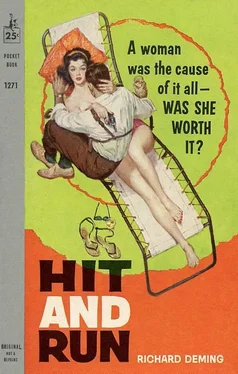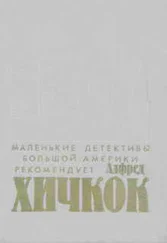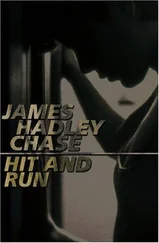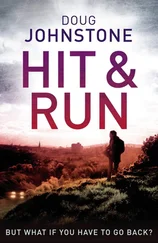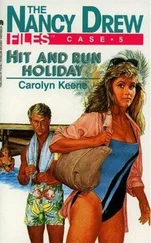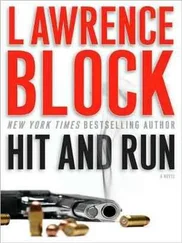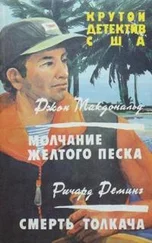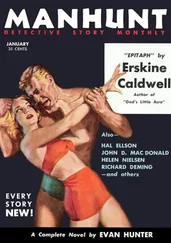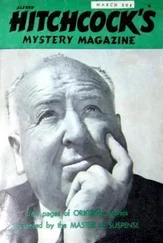He said, “The two bandits who held up an armored payroll truck at two P.M. this afternoon and escaped with more than a hundred thousand dollars are still at large. Police believe they must have switched cars after the daring daylight robbery, and somehow managed to slip through the roadblocks that were set up shortly after the robbery. Roadblocks were lifted at six P.M., as it is believed the bandits are no longer in the vicinity. A four-state alarm has gone out for the two men, who are described as—”
Calhoun missed the descriptions when Helena broke in with, “Did you hear that? There was a big robbery in Cleveland today.”
“It’s been on television a half dozen times this afternoon,” he growled at her.
“I wasn’t listening. I was watching you.”
Music swelled from the radio speaker, indicating the newscast was over.
When they reached the edge of town, Calhoun said, “That news fellow was telling the truth, apparently. I’m surprised.”
“The truth about what?” Helena asked.
“The roadblocks being lifted. I was a cop so long, my mind still works like one. I thought it was a police trick.”
Helena looked puzzled.
“If the bandits are still holed up locally, they’ll listen to every newscast,” he explained. “So the police give out the news that roadblocks are lifted. If the bandits are dumb enough, they’ll believe it and try to run. And run square into a roadblock.”
After thinking this over, Helena said, “That’s clever. And even cleverer of you to see the danger. But if you thought we might run into a roadblock, why did you take the chance of driving into town?”
“It wasn’t a chance. They’d be stopping cars leaving Cleveland, not entering it. If we’d spotted a roadblock on the way in, we’d have to change our plans and figure some way to get rid of him within the city limits. But they must actually have lifted them. They must have definite information that the bandits are out of the area.”
They passed through Cleveland without incident. Some miles beyond it Calhoun slowed as they went by the wooden arch reading, CRESTWOOD BEACH, PRIVATE ROAD.
“There’s the place you’ll have to come back to,” he said. “Better pick out some landmarks, so you won’t drive past it on the way back.”
“I’ll find it,” Helena said.
A half mile farther on they ran into a double lane of stopped cars.
“What is it?” Helena asked. “An accident up ahead?”
Calhoun shook his head to indicate he didn’t know. Both lanes moved a car-length forward at that moment, then stopped again. Calhoun’s eyes narrowed as he noted that traffic coming from the opposite way was moving along without interruption.
Waiting for a break in the traffic coming toward them, he started to nose out to make a U turn. But a motorcycle officer roared toward them from up ahead and motioned him back in line. The motorcycle swung around and drew up alongside.
“You’ll have to stay in line, mister,” the officer said.
Calhoun said, “We went past our turn, officer. We were headed for Crestwood Beach. My wife says we just passed it.”
“You did,” the policeman told him. “You can swing around as soon as your car is checked.”
“Checked?” Calhoun said. “Listen, officer, there’s nothing wrong with my brakes. Do we have to wait? Some people are expecting us, and we’re late now.”
“It isn’t a brake test. Sorry, mister. You’ll have to go through the checkpoint. It won’t take long.”
Apparently the two men in the black Ford sedan in the lane next to them had been listening. Both were small, dark men dressed in leather jackets and battered felt hats. The driver called over, “We were going to Crestwood Beach, too, officer. Did I hear you say we passed it?”
“About a half mile back,” the policeman said.
The driver said, “Can we pull out of this and swing around?”
The policeman shook his head. “Sorry. Not till you’ve gone through the checkpoint.”
Looking across at the other car, Calhoun caught an expression of near desperation on the face of the little dark man. In the reflected glow of dozens of headlights, he could see the man clearly.
The line moved forward several car lengths and several more cars pulled in behind. The policeman swung in another U turn and went to the end of the line to head off any other cars that might try to turn around.
Calhoun cursed under his breath.
“Is it a roadblock?” Helena asked.
“Obviously,” Calhoun said. “The radio was lying after all.”
“But why wasn’t there one the other side of town?”
“It was probably east of the tourist court. We were inside of it. They’ve set it up more than ten miles from town so the bandits will get overconfident. I should have thought of that.”
Helena said, “What are we going to do?”
“Fry in the electric chair, probably,” Calhoun said bitterly.
Calhoun was thinking furiously as they drew closer and closer to the checkpoint.
Finally he said, “Maybe we can delay the inevitable, anyway. Get that Packard trunk key out of your purse.”
Helena unsnapped her bag and handed him the key. The next time the line stopped again, he cut the engine, pulled the keys from the ignition lock, and quickly unclipped the trunk key. He substituted the Packard trunk key, handed Helena the other, and slipped the ignition key back in its lock just as the line moved forward again. Helena dropped the key in her bag.
They were now nearly to the head of the line. Both lines were being checked at the same time. The operation was being handled with smooth efficiency. A state trooper standing on the highway shoulder a few yards from the checkpoint said to each driver as he came abreast, “Have your driver’s license and registration ready, please.” At the checkpoint one officer in each lane examined license and registration papers, while another quickly but thoroughly checked the interior of the car and the trunk.
Calhoun got his driver’s license from his wallet and told Helena to give him hers and the car registration. Silently she took them from her bag and gave them to him.
The inside lane had moved a trifle faster than the outer one. The black Ford containing the two small, dark men reached the checkpoint one car before the Buick did. Calhoun noted again that the driver seemed highly nervous as he got out to open the trunk.
A wild hope struck him. Was it possible that the Ford was the bandits’ car? It would be a highly unlikely coincidence, a near miracle even, for the police to net their prey at this precise instant. But the little dark man certainly was acting in a suspicious manner. And he had attempted to get the motor officer to let him turn around. Now it struck Calhoun that it would be a remarkable coincidence if the Ford actually had been heading for Crestwood Beach, as the driver had claimed. It seemed much more likely that he had jumped at the name as an excuse to avoid the checkpoint.
Calhoun peered forward at the Ford’s trunk with growing hope as the little man reluctantly let it swing open. His hope collapsed abruptly when he saw the interior of the trunk. It was piled high with dead fish.
The little man peered fearfully sidewise at the state trooper as the latter glared into the trunk.
“Well, well,” the trooper said in an ominous tone. “Must be at least a hundred black bass in there.”
“Seventy-two is all,” the little man said. “There was twelve of us out fishing, officer. Honest. The others went on ahead in different cars. We just happen to be carrying all the fish. We only took six apiece.”
“Twelve of you all in one boat?” the trooper inquired sarcastically.
“We had three boats,” the little man said.
Читать дальше
